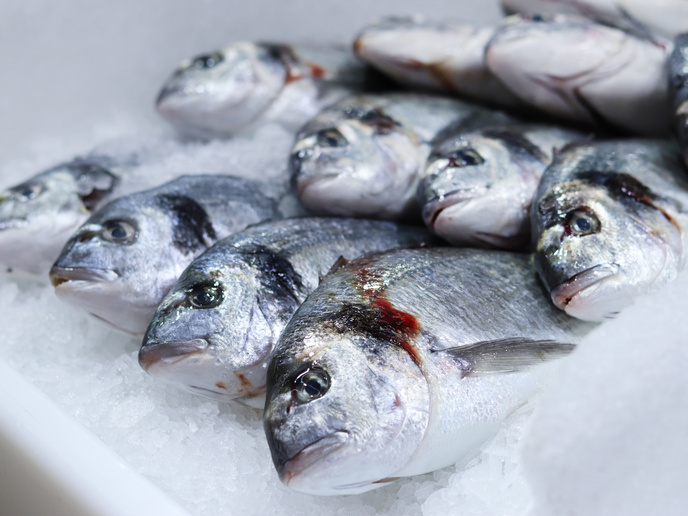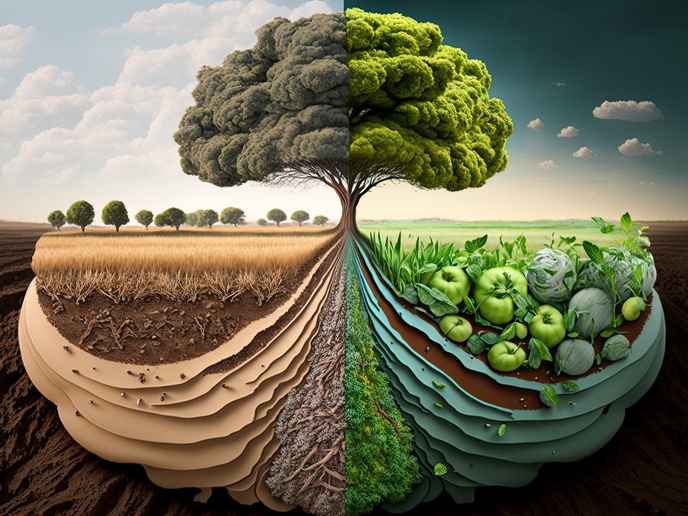Algae at the centre of the bioeconomy
The global population is growing rapidly and is expected to reach nearly 10 billion by 2060. With evolving consumer demands for healthier, more sustainable products, this growth poses serious challenges to how we produce and supply food. In this context, the bioeconomy must look beyond land-based agriculture and explore new options such as the ocean which covers 70 % of the Earth’s surface.
Building a sustainable microalgae value chain
Of all marine resources, microalgae constitute one of the most diverse and rich biomass feedstocks. They are rich in high-value compounds and can be used in food, feed, cosmetics and wellness applications. Microalgae represent a vastly underutilised resource, with only Spirulina and Chlorella being commercially produced. Moreover, there is no large-scale industrial plant that makes use of the wider biodiversity of microalgae. The EU-funded SCALE(opens in new window) project aims to address this by pioneering advanced cultivation and processing technologies to unlock the true potential of these aquatic microorganisms and deliver sustainable, bio-based ingredients to a wide range of industries. Coordinated by Microphyt(opens in new window), a leader in microalgae-based natural ingredients, SCALE brings together 11 partners from five European countries. “Our approach encompasses the entire value chain from microalgae cultivation to the extraction of bioactive compounds and their application in end products,” explains project coordinator Vincent Usache. To achieve this, the consortium employed a patented photobioreactor technology, which enables efficient and sustainable large-scale production. Considerable effort was devoted to optimising the energy efficiency of the process with innovative LED-based lighting solutions tailored to microalgae cultivation needs. The methodology used also accommodated thermal and power demands with environmentally friendly solutions.
Diverse applications of microalgae
SCALE produced bioactive compounds with potential applications across multiple sectors. In the cosmetics industry, partners collaborated with companies like Chanel Parfums Beauté with an aim to replace synthetic ingredients with natural microalgae-based alternatives. These compounds can be used in products with skin anti-ageing and protective properties. In the food industry, microalgae-based compounds can serve as food supplements to improve cognition, weight management and overall immunity. Microalgae are also a promising source of protein, vitamins and minerals, and incorporating microalgae-based food products into our diet is believed to be beneficial. “By demonstrating the versatility and effectiveness of microalgae-derived compounds, we can open new markets and promote sustainable practices across industries,” emphasises Usache.
Socio-economic and environmental impact
SCALE aims to contribute to regional development and environmental sustainability by creating new jobs in coastal and rural areas. These employment and training opportunities will also help integrate these communities in the bio-based economy. The project aligns with the EU’s 2050 climate-neutral strategy and addresses multiple UN Sustainable Development Goals(opens in new window), including responsible production and marine conservation. In addition, SCALE contributes to the reduction of greenhouse gas emissions by at least 20 %. Moreover, the project is fully aligned with the Nagoya protocol(opens in new window) and poses no risk to aquatic biodiversity, since the microalgae are cultivated under controlled conditions that do not disrupt marine ecosystems. Importantly, SCALE’s algae-derived feed products can support more sustainable aquaculture practices, reducing pressure on wild fish stocks and protecting ocean biodiversity. “By investing in initiatives that focus on natural, renewable sources, we move closer to a resilient and sustainable bioeconomy,” concludes Usache.







